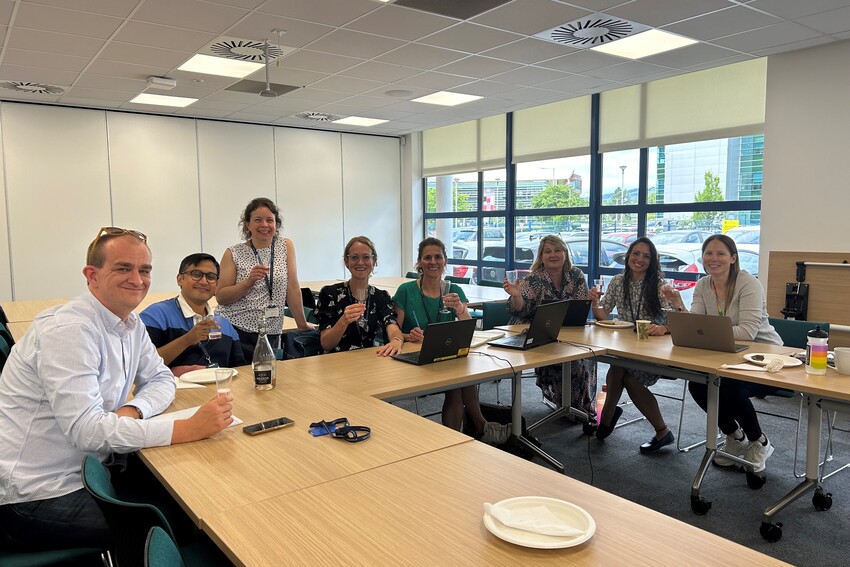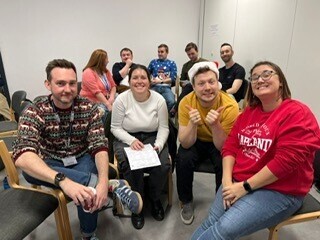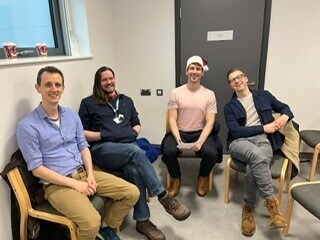Intensive Care Medicine in Wales
What is Intensive Care Medicine?
ICM specialists (intensivists) are involved in all aspects of care of the critically ill. Intensivists provide organ system support along with the investigation, diagnosis, treatment and management of acute illness. As an intensivist you will have contact with patients from all specialties and work with a multitude of healthcare professionals throughout the hospital.
ICM frequently provides outreach services, teaching and training in the management of critically unwell patients to other hospital departments. Intensivists frequently attend, assess, monitor and review deteriorating patients in the Emergency Department and other inpatient areas.

Training in Intensive Care Medicine in Wales
Wales is a diverse, lively country of over 3 million people that is just waiting for you to call it home! The Welsh deanery covers all 20,000 square kilometres of Wales, from the mountains of the North to the Valleys of the South; from busy sea side towns and cities to traditional rural villages. Wales offers something for everyone.
From a training perspective – the Welsh Deanery can offer unique and specialised training as well as opportunities to achieve all of the expected learning outcomes to gain a CCT in intensive care medicine.
South Wales’ major trauma network is now established and with that comes opportunities to manage complex trauma, traumatic brain injuries, facilitate transfers and coordinate repatriation. Further West, Swansea is home to the Welsh centre for Burns and Plastic Surgery. This tertiary burns centre plays a central role in UK burns network and provides trainees with valued experience in burns critical care.
In North Wales the hospitals deal with large volumes of trauma too, with collaborative care between the district general hospitals of the region, which feed into the North West Midlands and North Wales Trauma Network, with the MTC located in Stoke. North Wales provides its own challenges with its rural landscapes, fast roads and rugged coasts – this leads to valuable opportunities to experience multi-agency patient care; and for those experienced in the mountains may provide the backdrop for voluntary work with local mountain rescue teams.
With regards to lifestyle – Wales is hard to beat. It caters for all. On the one hand it has cosmopolitan cities that host world famous music concerts, international sports events and lively nightlife. On the other, it has three national parks, over 800 miles of walkable coastline and an abundance of outdoor pursuits for all tastes!
Housing in Wales is generally affordable and its communities are notoriously welcoming. Wales also has its own language – Welsh. About 20% of the population speak Welsh fluently, and if you are interested there is ample opportunity to learn some Welsh and apply it in your clinical practice!
The STC and Deanery in Wales are committed to your development and education and will provide you with a scheme that lets you grow in experience and confidence as the years go by. The variety of training opportunities and locations in Wales will make you a well-rounded professional ready to take on a consultant role in any large or small hospital.
The Training Programme
The ICM specialist training scheme in Wales is funded by the deanery. This allows the scheme to select posts which will most benefit trainees.
Stage 1
Morriston, The Grange, West Wales General, Princess of Wales, Royal Glamorgan, Prince Charles, Ysbyty Gwynedd, Glan Clwyd and Wrexham Maelor.
Stage 2
Special skills training in undertaken in either Morriston or Cardiff to facilitate cardiothoracic, paediatric and neurosurgical experience.
Special Skill year is variable depending on single or dual CCT and specialist areas chosen to develop.
Stage 3
Stage 3 is likely to be split between one of the larger hospitals in South Wales, and experience within a smaller unit.
Recruitment
Recruitment takes place annually via a centralised process for doctors starting at ST3. Further information, including person specification, is available from the Faculty of Intensive Care Medicine and from the ICM National Recruitment Office overseen by Health Education West Midlands.
A meeting is held annually by the STC to support prospective trainees in the application process and to address any questions. A recording of the 2021 meeting is available here










